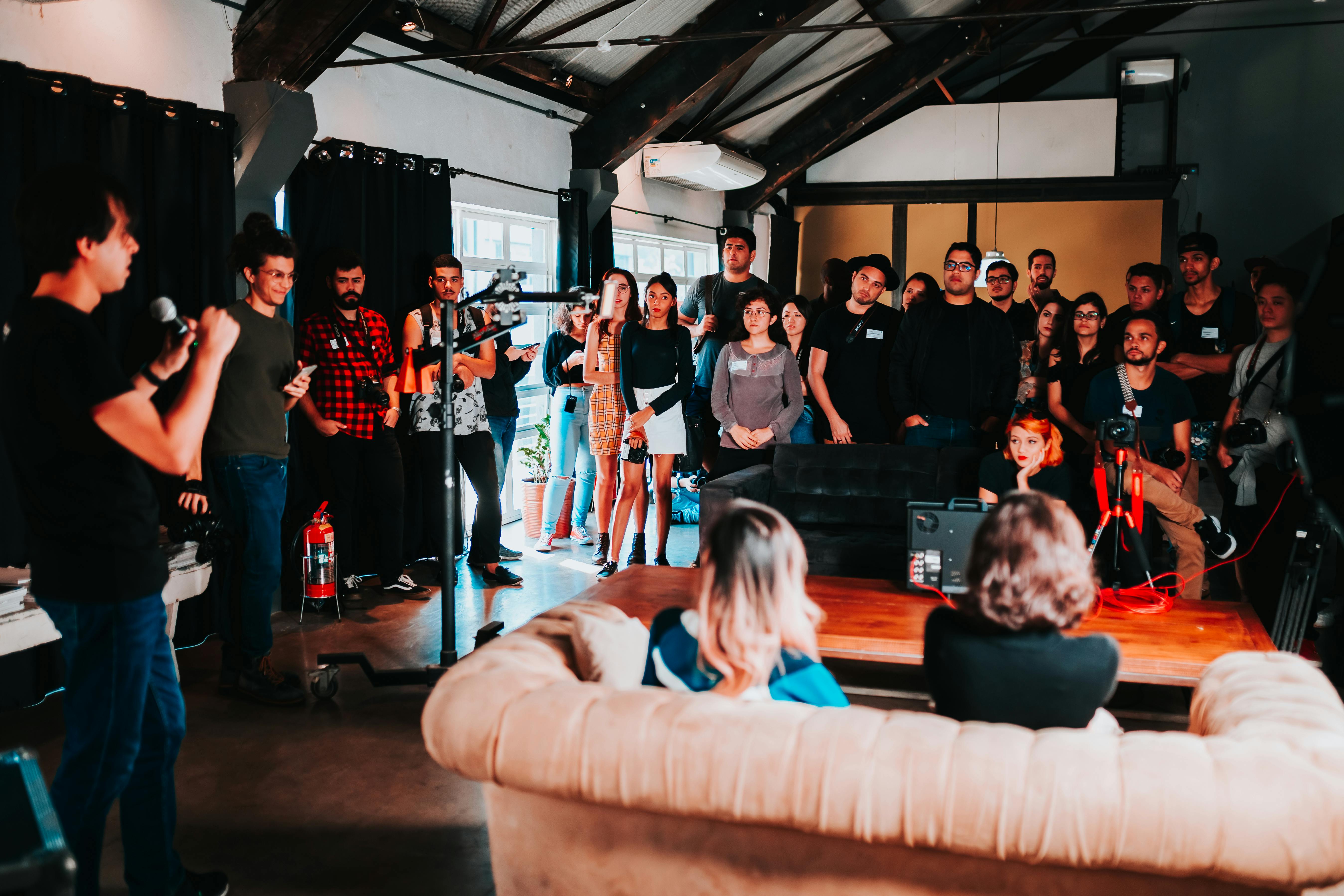How to invest in your music career without going broke
Here’s how you can invest in your music career wisely, promoting growth while avoiding wasting money.
Starting a music career can be an exciting journey, but it often comes with financial challenges. Many independent artists wonder how to grow their careers without spending all their savings or falling victim to scams. Investing in your career doesn’t have to mean sinking all your money into it. We’ve compiled some ideas for how you can promote the growth of your career without going broke or even spending any money at all.
Why investing in your career is important
Investing in your music career is crucial if you want to stand out and build a sustainable path in the industry. While raw talent and hard work are essential, strategic investments in yourself – whether in equipment, education, or networking – help you level up and reach a broader audience. Smart investments help you avoid shortcuts or ineffective methods that can drain your budget without real results. Investing doesn’t always mean money, either. Investing your time wisely is important too, and wasted time can be just as painful as wasted money.
Since the majority of independent artists are working with limited resources, it’s beneficial for them to make considered and calculated decisions about how they advance their career. The key is knowing where to spend money and time to build your brand, improve your skills, increase visibility, and grow your network.
In this guide, we’ll explore how you can invest in your career wisely, enabling you to grow sustainably without risking financial strain and falling prey to common traps.
Books and self-education

Learning new skills and continuing your education within music and the industry is one of the most beneficial investments you can make in your career. This can be done in a number of ways, so we’re going to give you a couple of ideas.
Books
You may be used to doing all your reading online, but don’t overlook books.
Books are an affordable way to build a strong foundation in music business and marketing. Look for titles like All You Need to Know About the Music Business by Donald Passman, which provides insight into contracts, royalties, and other industry essentials. Similarly, How to Make It in the New Music Business by Ari Herstand is a practical guide specifically for indie artists navigating today’s digital landscape.
Books on general marketing, like Building a StoryBrand by Donald Miller, are also useful for learning how to connect with audiences and create a compelling artist persona. These investments are low-cost but high-impact, giving you strategies to build a sustainable career on your own terms.
Online courses
There are plenty of affordable online courses on platforms like Udemy, Coursera, or even free ones on YouTube that can teach you the basics of music production, social media marketing, and branding. For example, if you’re interested in learning music production, consider a course on Ableton Live or FL Studio to help you produce quality music from home. Many independent musicians find that a small investment in self-education helps them avoid costly mistakes later on.
Hardware and software
We all know the saying, “All the gear and no idea.” It is a good idea to not overspend on equipment you don’t necessarily need just yet, but sometimes it is nice to make an aspirational purchase. A nicer new guitar might well encourage you to practice more.
However, don’t let that adage hold you back – sometimes a new purchase of hardware or software can enable you to take your skills to the next level. Here’s how you can invest in these things in a considered and smart way.
Basic recording equipment
When starting out, you don’t need the latest high-end studio equipment. Instead, focus on versatile tools that provide good sound quality without a massive price tag. For example, a Focusrite Scarlett 2i2 audio interface and an Audio-Technica AT2020 microphone can give you excellent recording quality for vocals and instruments at a fraction of the cost of professional studio gear. Pair these with quality headphones like the Audio-Technica ATH-M50x, and you’re set to record demos and share your music.
Music production software
If you’re producing your own music, you’ll need a reliable DAW (Digital Audio Workstation). Affordable options like Reaper, which has a $60 license, or GarageBand (free for Mac users) provide powerful tools for beginners. If you’re an artist that wants to experiment with beat-making, consider investing in software like FL Studio or Logic Pro if you’re on Mac, which often offer lifetime updates – saving you money in the long run.
People

A very smart investment in your career is finding and surrounding yourself with the right people. Even if you’re a solo artist, you aren’t an island. Deciding to further career means thinking about who can help you do that. Do you need a manager? Is it time to contact a producer to help on your next record? Will a collab with another artist help to grow your audience?
Collaborators
Whether it’s another artist, or a producer, you can invest in your career by collaborating with people and learning from them. Not only will an experienced producer, for example, help you get a better recorded sound faster than if you worked on your own, you can also learn skills from them to help further your music education.
Managers
Not everyone goes down the manger route, and it’s a decision that is individual to each artist. The DIY approach may work better for some than it does others, whereas some artists may appreciate the relief of logistical, financial, and business responsibilities. If you decide that having someone to handle the non-creative aspects of your career, investing in a manager could be an accelerator to accessing opportunities and growing your network as an artist.
Press photos and PR
Presenting yourself properly as an artist will make you seem more professional and serious about your career. This is a massive green flag for any of the people you’re trying to appeal to for gig bookings, record deals, TV appearances and so on. This is why putting time and money into your image as an artist is a smart investment.
Press photos
A good press photo can make a huge difference when you’re reaching out to media or curators. Rather than hiring a celebrity photographer, search for local photographers who offer reasonable rates for aspiring artists. If you have basic photography skills, learn to use natural light and take your own photos or ask a friend. Use free photo editing tools like Canva or GIMP to polish your images.
Again, investing doesn’t always mean spending big. It’s about careful consideration and effort.
Press and PR (on a budget)
You absolutely could reach out to a PR agency if you wanted to and had the funds required. But, you don’t have to go high-end and break the bank to invest in the PR side of things.
Instead, you can reach out to music blogs, local newspapers, and online publications on your own. Write a short, engaging press release highlighting your unique story and music. For example, Hype Machine and SubmitHub are platforms that connect artists with music bloggers and playlist curators. Submitting your music here is often more cost-effective than hiring an agency, and it keeps you in control.
Marketing and social media

Marketing can be executed in so many ways; there’s digital, physical, paid, organic, the list goes on. The beauty of this is that you have so much choice around how you market yourself, including how much money and time you spend on it.
Whatever your chosen approach is, because marketing is such a powerful tool for visibility and growth, it’s important you do invest in it.
Social media ads
Social media ads are an effective way to reach new fans, but it’s easy to overspend. Start with a small budget – £10 a week – to promote your newest single or video on platforms like Instagram or Facebook. By targeting a specific audience (age, location, music interests), you can ensure that your investment is reaching those who are most likely to connect with your music. For instance, if you’re a hip-hop artist, target fans of similar artists within your age range.
Influencers and Collaborations
If you’re considering influencer marketing, don’t feel pressured to approach top-tier influencers with massive fees. Instead, reach out to micro-influencers, or even nano-influencers, who have a smaller but dedicated following within your genre. They’re often open to collaborations and can create content like TikToks or Instagram Stories featuring your music. This approach allows you to reach their followers without breaking the bank.
Content creation
Investing your time in content creation on social media is worthwhile. Recent surveys show that audiences enjoy being able to interact with artists on social media, and feel more connected with them as a result of their content sharing.
You can post videos showing the behind the scenes of your creative process, you can host livestreams, Q&As, even hold competitions. Whatever type of content suits you, run with that. Staying consistent with it helps, so make sure your content strategy is sustainable and realistic for you. If you feel like you’re at this stage, you can even get someone else on board to handle the social media side of things for you.
Events and networking

People often say, “It’s who you know, not what you know”, and that couldn’t be more true of the music industry. Reputation and connections are the things that unlock doors, put you in the way of opportunities, and are instrumental in growing your music career. This is something every independent artist should absolutely invest their time in.
Local events
Turn up to local gigs and support your peers, get involved at jam nights and open mic nights. This will help you to meet people in your local scene – and not just other artists. By attending a variety of local music events, you could meet promoters, producers, venue managers, all sorts of people that it is useful to know. Making a name for yourself locally can then lead to gig offers and the like further afield.
Networking opportunities
Committing yourself to networking is a smart way to invest in your music career that won’t cause you to go broke.
You don’t have to spend loads of money on expensive industry events if you don’t want to. Alternatively, you could attend free workshops or virtual meet-ups offered by organisations like The Musicians’ Union. LinkedIn is also a great tool for connecting with other musicians, producers, and music managers. Building genuine relationships through networking will benefit you in the long term.
Summing up
Investing in your music career is about making strategic choices that drive long-term growth without financial strain. By prioritising essentials – like quality equipment, self-education, and affordable marketing – you create a strong foundation to grow your brand, build a loyal fanbase, and develop your craft sustainably.
Success in the music industry is a gradual journey, with the most successful artists often achieving their goals by making thoughtful, incremental investments. Books, courses, and networking are valuable, low-cost ways to gain industry knowledge and build connections. Meanwhile, managing your time and focusing your efforts in the right place keep your career on track.
Each investment today serves as a building block for your future. By focusing on these essentials, you’re setting yourself up for a career that’s both financially sustainable and creatively fulfilling, allowing you to stay true to your music while steadily reaching your goals.
